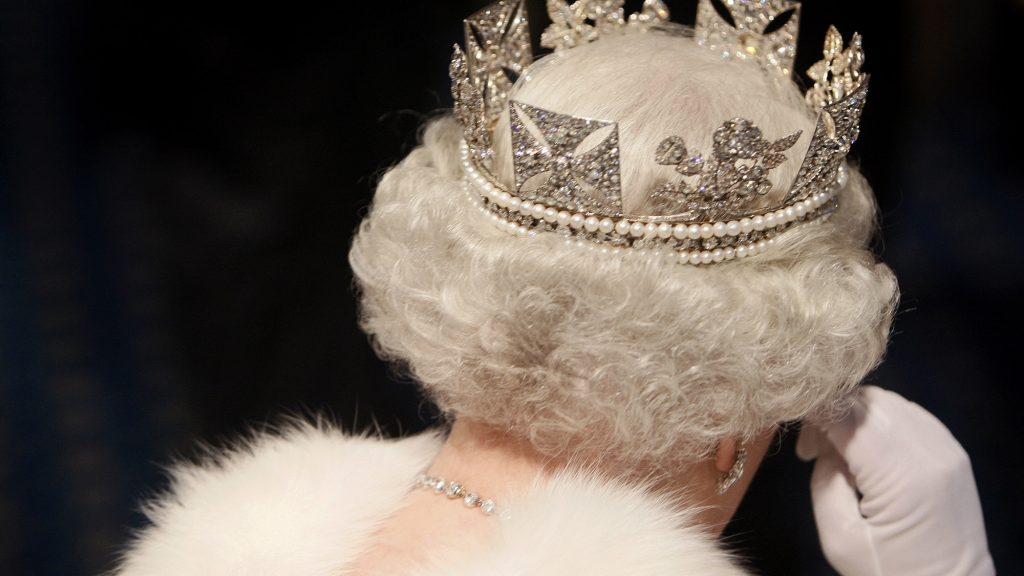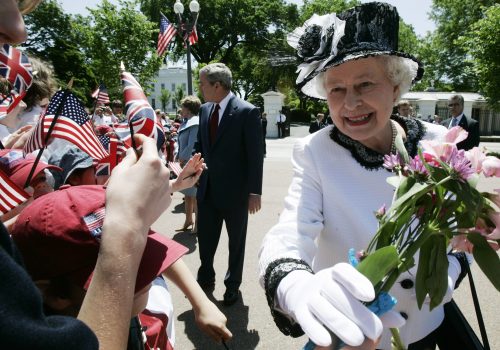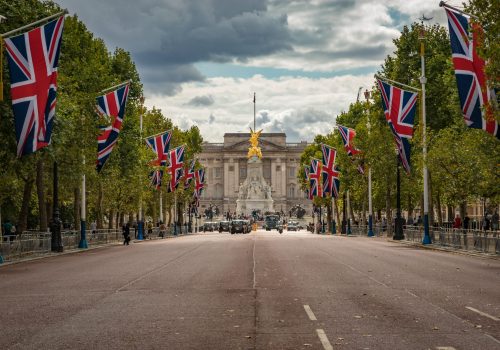The death of Queen Elizabeth II marks the passing of an era in the United Kingdom. It may also signal the end of an approach to global politics that she personified—an idea of a world brought together as a family or community, one that she deeply cared about.
The monarch was a source of continuity during a dramatic period of change and decline for the United Kingdom. When she was born, her father was emperor of India; in the last year of her life, the small Caribbean island of Barbados decided it no longer wanted the British monarch as head of state.
The queen continued to believe in connections with other nations and to promote them. The Commonwealth, the loose grouping of states that was once been British-ruled (and one or two others), was important to her—both the reality of enduring ties and the sense of a “family” relationship in which Britain had a lasting duty toward those states and their peoples, whatever constitutional system they had chosen. She spoke often of this sense of family, of extended relationships and generational connections. Perhaps this outlook isn’t surprising in one whose life and choices were so deeply shaped by her family, but it also reflected her life and times.
She knew many of the independence leaders of the Caribbean, Asia, and Africa personally. She had a sense, for example, of the dynamics at work in Africa around the struggle against apartheid. She visited many of the countries in the Commonwealth multiple times, displaying an understanding during these trips that things had been different twenty years before and might well be different again twenty years hence. She could connect what was happening in the moment with struggles decades earlier, with family and local politics.
In contemporary terms, she had a moral perspective on globalism. There are plenty of people in modern Britain who see the country’s connections abroad as purely a commercial opportunity or a source of strategic influence—or as problems to be ignored. The queen saw them as also an obligation, though we might disparage the idea of noblesse oblige or the patrician way that obligation was often expressed. She viewed the Commonwealth relationships as more than the sum of trade flows and weapons sales. To her, Britain’s place in the world was about the connections between peoples, not just elites, businesses, states, or monarchs, important though those were.
This outlook was influenced by her religious faith, her family history, and her wartime experience. It was partly about service. “I declare before you all that my whole life, whether it be long or short, shall be devoted to your service and the service of our great imperial family to which we all belong,” she said in a speech in Cape Town, South Africa, on her twenty-first birthday in 1947, using a word that is now antique and odious.
It is necessary to note that the country the queen led often exploited, repressed, and denied rights to the people it ruled, and that her public compassion for others didn’t prevent that. Her sense of morality and concern didn’t always match up with facts on the ground.
Yet in many ways she had more in sympathy with those who would criticize the imperial past than with those who would ignore history altogether. Hers was a moral approach to the world and its problems. It was partly about her view that people had responsibilities to each other.
“We are nourished and sustained by our relationships, and, throughout my life, I have enjoyed the privilege of hearing what the relationships built across the great reach and diversity of the Commonwealth have meant to people and communities,” she said this year in a speech to the Commonwealth. “Our family of nations continues to be a point of connection, cooperation, and friendship. It is a place to come together to pursue common goals and the common good, providing everyone with the opportunity to serve and benefit.”
The United Kingdom’s global ties will clearly persist in many dimensions: financial, economic, political. The monarch’s passing, though sad, will be just one moment in time. Britain has continuing close connections with many countries in Africa, the Caribbean, Asia, and the Middle East, and those connections have to do with practical British influence and trade. But the sense of moral, familial, and personal connection may now be ebbing. Perhaps that conception was always more romantic than real, but it was certainly a reality to Queen Elizabeth II. The moral sense of the world—what we owe to each other, and what we can gain by seeking goals in common—was to her the highest form of duty. That, at least, seems to be something she passed on to her son, now King Charles III.
Andrew Marshall is senior vice president of engagement at the Atlantic Council.
Further reading
Thu, Sep 8, 2022
The Atlantic Council remembers Queen Elizabeth II
Experts react By
Experts across the Atlantic Council network weigh in on the queen's seventy-year reign, her importance to the transatlantic relationship, and more.
Mon, Sep 5, 2022
Experts react: The United Kingdom has a new prime minister. What should the world expect from Liz Truss?
Experts react By
How will Truss balance economic challenges at home and deal with allies and foes abroad? Our experts weigh in.
Fri, Oct 8, 2021
Global Britain: An American review
Issue Brief By
What is happening to Britain in the world? Since 2016, when Brexit began with the United Kingdom’s shock “leave” vote to quit the European Union, the conversation has become almost impossible to have without entering into a fierce and polemical debate surrounding the country’s departure.
Image: Britain's Queen Elizabeth leaves the Houses of Parliament in London after the State opening of Parliament ceremony. Photo via REUTERS/Toby Melville.



